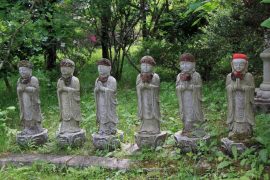It had started as a perfectly normal day for Joe Coutts, still slightly amazed at the recent transition into his teens, awaiting the return of his mother Geraldine to their home on a fictional Ojibwe nation reservation in North Dakota.
When Geraldine doesn’t return it doesn’t take long for alarm bells to ring for Joe and his father, Bazil, a tribal judge. “Women don’t realize how much store men set in the regularity of their habits,” says Joe, who is the voice of The Round House “ … our pulse is set to theirs and as always on a weekend afternoon we were waiting for my mother to start us ticking away on the evening.”
But Geraldine has been violently attacked and raped, narrowly escaping with her life. She withdraws emotionally and physically from her family and the world, refusing to leave her bedroom and giving no details of the attacks. There is a stifling sense of resignation among the community that the perpetrator will never be properly hunted and brought to legal justice.
And whilst Joe’s father continues to battle within the polarised legal systems, it is Joe, bewildered by his mother’s sudden alienation from the family, who is driven to find the attacker, piecing together supposition and snippets of information from over-heard conversations.
He is supported by his close and slightly chaotic friendship with Cappy, Zack and Angus and it is that relationship that inevitably provides the welcome touches of humour (and proving that Star Trek truly is a cross-cultural phenomenon on earth as well as in space.)
Scattered throughout the book are sub-texts, almost mini-stories: the mental and physical deterioration of Joe’s grandfather Mooshum with his seemingly inane ramblings, the jarring revelations and antics of the Marine turned local Priest, and the slightly forced revelation of a friend’s life caught between the two worlds. Although not always entirely successful, overall, they provide a textural richness.
The climax is both anticipated and a shock and challenges individual perceptions of justice and retribution.
Erdrich is a enrolled member of the Turtle Mountain Board of the ChippewaIndians and her writings have consistently exposed the harsh reality of life for the first Americans. In The Round House (which is a traditional tribal holy place), life on the reservation is matter-of-factly outlined: the poverty, the complex tug of the modern and the traditional, and the often violent cultural wars that means more than half native American Indian women will be assaulted and raped mainly by white men, few of whom will ever be brought to justice.
The Round House is Erdrich’s 14th novel and is technically a sequel to The Plague of Doves which was short-listed for the Pulitzer Prize and which focused on Bazil’s work in the tribal courts. However, it is a self-contained read, totally absorbing even without the context of the earlier work. It won the 2012 National Book Award.
Despite her success, this was the first Erdrich novel I had read, although it was closely followed by The Plague of Doves. Occasionally it runs into the usual problems of a book told in the first person (conversations that are needed to explain events but which seem unreal in their depth and complexity) but that’s just a niggle. Overall it was a wonderful read, beautifully crafted with a language that was both lyrical and brutally sparse.

Comments are closed.